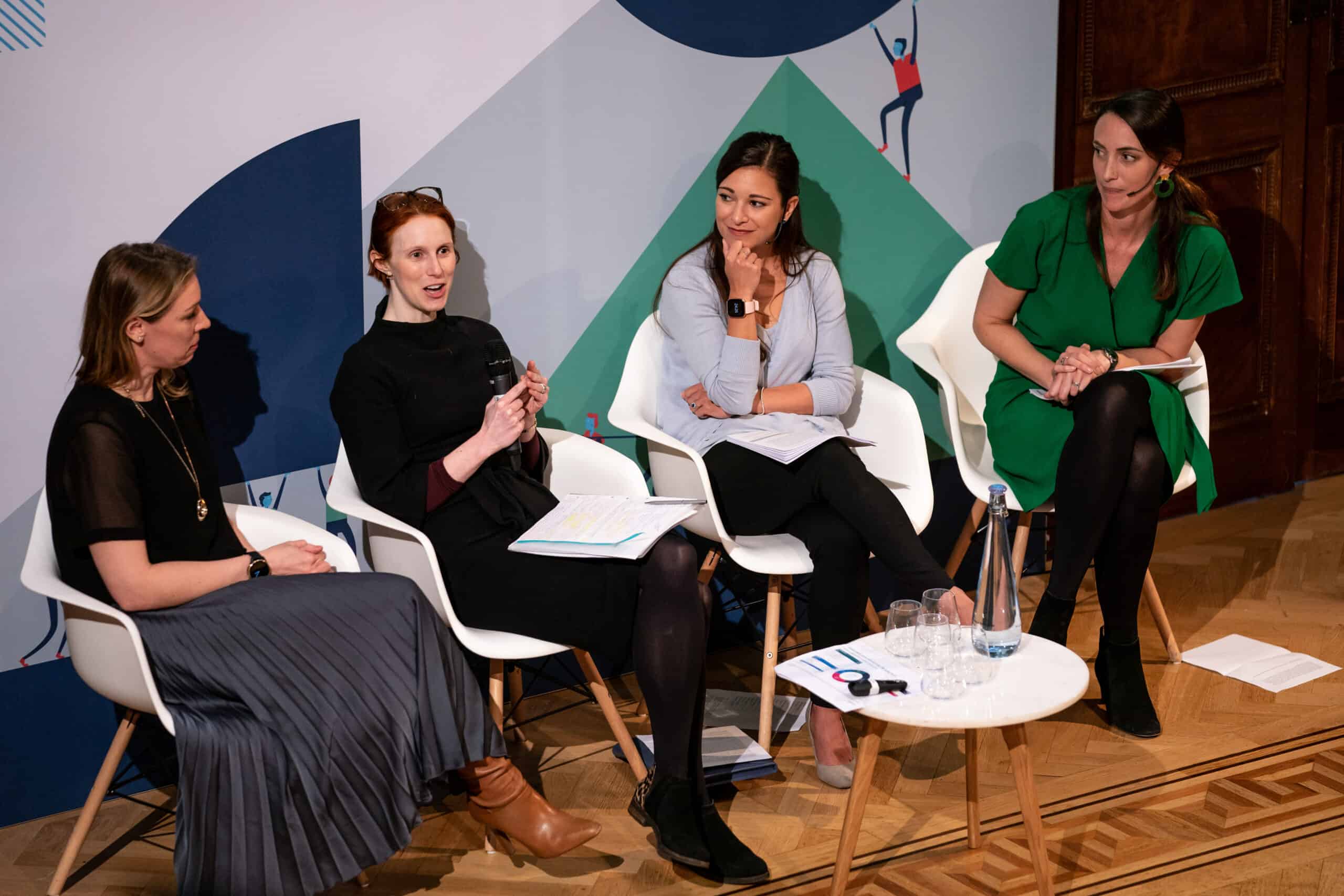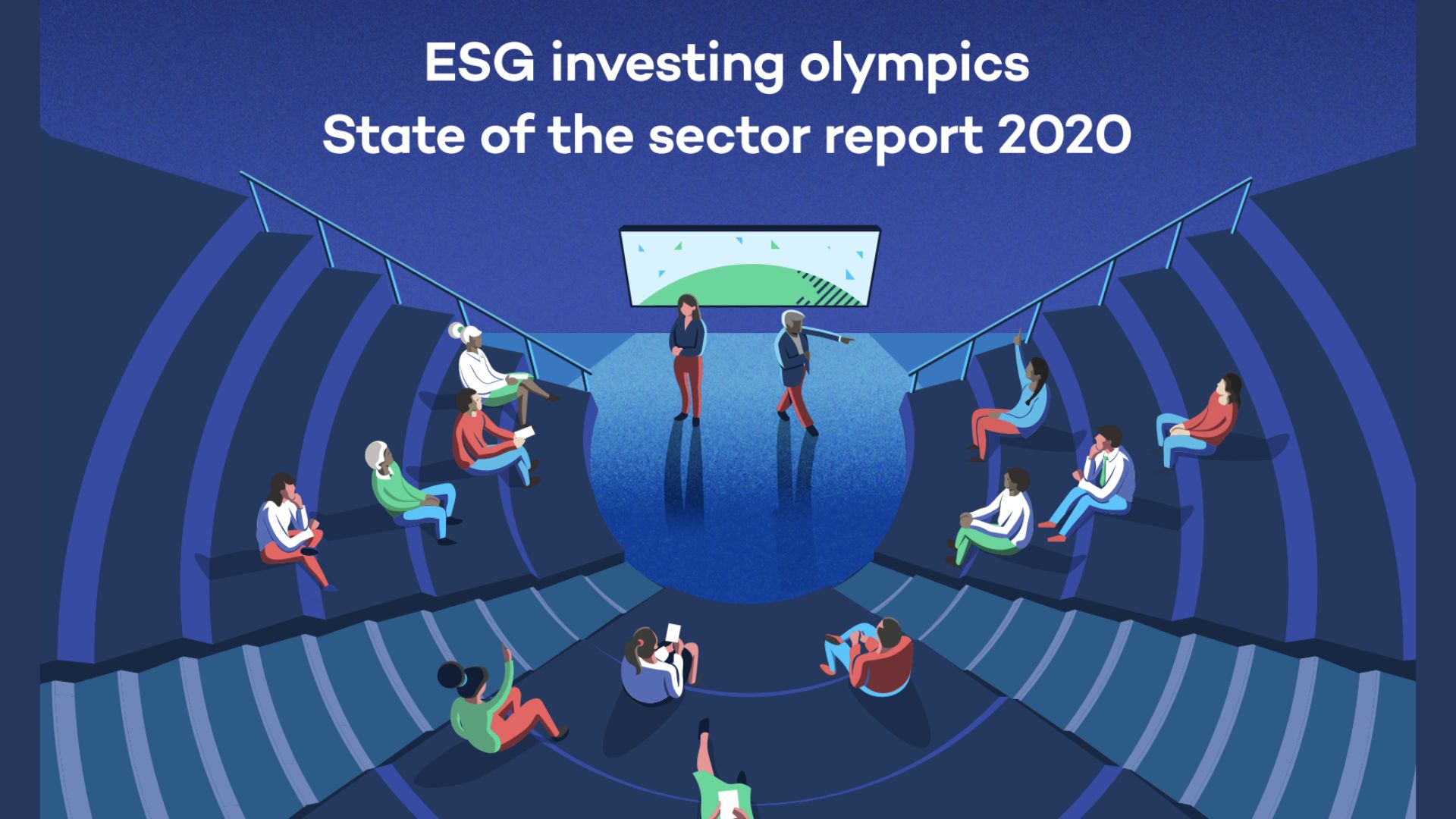


Raising the bar: Reflections 3 years after the launch of the Cazenove Capital Sustainable Growth Fund
Date: 14/05/2024

How were we involved in the creation of the Cazenove Capital Sustainable Growth Fund?
In 2020, alongside Joffe Trust and Blagrave Trust, we launched a process called the ‘environmental, social and governance (ESG) Investing olympics’, or the ‘ESG olympics’. We did this because we believe the purpose of investment should be to direct capital to socially, environmentally, and economically useful activity, and to help address societal challenges; rather than to focus on short-term financial returns.
The ESG olympics was part of our ongoing intention to make all our capital contribute to our mission of a fair and sustainable economy. Our view was that the climate emergency and severe inequality further prompted action through our investments, as well as our grant-making.
With Joffe and Blagrave, we made an investment mandate of £33.5m public, with the instruction simply to ‘impress us’ on ESG integration and impact. Our Investment Engagement Manager at the time, and investment committee, were staggered when 59 investment managers applied.
A public event provided a focal moment of transparency.
Over 100 people – including some of our grant-recipients, fellow mission investors, campaigners, charity trustees and academics – came to quiz representatives of the 5 investment managers that were shortlisted. The ESG olympics, which we believed to be a global first, garnered great attention and has been replicated in the Great Canadian ESG Championship and Eiris Foundation’s Million Dollar Question.
Cazenove Capital, part of Schroders group, won the popular vote at the event and also came out on top in the individual assessment of our Investment Committee. The Committee considered two related types of impact: deep impact on social and environmental sustainability from the fund itself, and influences on the investment industry. The final choice was judged to be the right balance of the two impact objectives.
Cazenove Capital’s Sustainable Growth Fund was launched in early 2021. 3 years on, we have been reflecting on progress against our objectives. This is in-keeping with Friends Provident Foundation’s desire to be transparent about our experience with Cazenove Capital and the broader Schroders group.
In doing this, the social and environmental crises we face bear heavily on us. We feel the tension of what it means to be a foundation that invests in mainstream capital markets and believes in engagement as a tool for transformational change. We recognise that the areas of progress mentioned below come in the context of a system that many in our orbit view as fundamentally problematic. We are constantly challenged by and learning from other foundations and wealth holders taking different approaches, whether redistributing all their assets or focusing more on impact investment or social investment. We hope this transparency adds usefully to this conversation.
What had we expected when the fund was launched? How does it look after 3 years?
In our mandate, we clearly set out our exclusions and positive priorities for investment, largely based on our Investment Principles and Policy. We think Cazenove Capital is professional about managing exclusions. We also think they have shown good practice integrating ESG factors within the selection process across asset classes.
How capital is allocated was a priority within our mandate. Cazenove Capital’s latest report lays out that 100% of the portfolio acts to avoid harm, 83% benefits stakeholders and 30% of the investments are materially contributing to the UN Sustainable Development Goals.
The 30% being allocated into higher impact investments includes the likes of The Schroder BSC Social Impact Trust, which Cazenove Capital are the cornerstone investors in and we have a small investment in through the fund. The Trust was established by Better Society Capital in collaboration with Schroders, to facilitate and grow access to high impact investments. The Trust provides capital for local social organisations and charities working with disadvantaged people in the UK.
Cazenove Capital have developed their impact reporting over the past 3 years (see latest report here). They have had their reporting externally verified by Bluemark. We are glad to see an increased amount of qualitative information in their reports, as well as quantitative reporting that is common to see. We would like to see more of these stories of change going forward.
The examples and transparency are encouraging. But it is harder for us to judge the full extent of investment in our more specific positive priorities, as we do not have a model to track this across our portfolio.
Influencing wider change in the investment industry
In our mandate, we laid out that Cazenove Capital must show commitment to influencing positive change on ESG factors in the wider industry. We have seen some action on this, for instance their engagement with other asset managers on voting best practice.
Part of our theory of change when choosing Cazenove Capital was the potential to influence Schroders, given Schroders’ significant scale and growth over recent years.
To evaluate this, we look at Schroders’ responsible investment approach, engagement policy and voting records, supported by grant recipient NGOs like ShareAction and Students Organising for Sustainability (SOS).
As with any assessment, there is always a dance between looking at overall trends and individual cases.
In terms of overall trends, we see Schroders as a good practice, mainstream ESG investor. Our understanding is they wrestle well with the gamut of ESG issues, including emerging ones that we have less of a direct focus on like nature. It was good to see Schroders committing to transition to net zero across their investments and direct operations by 2050. A core ethos of our relationship with Cazenove Capital is continuous improvement. So, we would like to see Schroders improve from their BBB rating in ShareAction’s Point of No Returns survey, which has not changed since 2021. We would particularly like to see progress on social issues.
As a signatory to both phase 1 and 2 of the COP26 Declaration of minimum climate expectations for investment managers, coordinated by SOS, we engage with Schroders on their approach to limiting global heating to the targets set out in the Paris Agreement. As with the wider investment management industry, there is much further to go before practices are consistent with the scale of change needed – and we continue to raise this in conversations with Cazenove Capital. The science is clear that there can be no new fossil fuel projects globally if we want to stay within safer climate limits, so we are committed to ensuring the investment management sector more closely aligns with this.
Most urgently, we urge Schroders to take the lead in committing to an immediate end to all primary market financing for fossil fuel expansion across all its assets under management. A specific crucial step would be excluding companies that derive significant revenues from coal or tar sands (defined at 5% of the companies’ revenues).
ESG engagement, escalation and voting
We believe Schroders is, relative to many mainstream investment managers, a progressive ESG engager and voter. They have integrated a ‘comply or explain’ policy on voting for social and environmental shareholder resolutions into their voting and escalation policy. There has been a moderate improvement in their ESG voting practices since 2021, according to ShareAction’s Voting Matters report, but this stalled between 2022 and 2023.
The context of the ESG backlash is relevant, so we recognise Schroders has generally maintained its ESG engagement and voting practices during this phase. Going forward, we would like to see them go further, including increasing their votes against directors at companies who are not performing on ESG issues.
Moving to a specific case, the 2022 real living wage vote at Sainsbury’s brought up questions about potential red lines in terms of ESG voting practice. We disagreed with Schroders’ decision to vote against the resolution and pre-declare they were doing so. For us, this was an opportunity for intensive engagement with Cazenove Capital as a client. We know for others it was a red line.
In crucial cases like this, we want progressive investment managers to appreciate systemic effects in their decision-making. The systemic effects of low wages on society, not just related to the company in question, is a key reason for voting in favour of real living wage resolutions. The systemic effects of a progressive investment manager pre-declaring a vote against an ESG resolution, in terms of how this influences other investors, is why we were so concerned about this step. This is especially so given the inertia and recent significant row backs from the biggest asset managers when it comes to pro ESG votes on resolutions.
Moving forward, we would be interested to explore further opportunities to work with Schroders on specific areas of investor to company engagement. We would also like more collaboration with other clients to work together to keep driving the level of ESG ambition at Schroders.
Finances
For us, the financial purpose of our investment was to maintain the real value of capital over a market cycle, whilst generating regular payments. We were willing to accept a higher degree of risk to generate a better return. So far Cazenove Capital report that the fund has delivered outperformance compared to a peer group represented by the ARC Steady Growth PCI Index. Outstanding questions remain about: whether peer benchmarking is most appropriate for mission-focused investors and, if so, what would be appropriate financial benchmarks for different types of investment across the spectrum of capital. We continue to think about how we assess the financial performance of all our investments, whilst keeping our mission in mind.
Relationship with Cazenove Capital and the growth of fund
The team at Cazenove Capital have been responsive, clear, and relational to work with. We have had access and ability to build relationships with decision-makers, which is a good model for how an ESG-conscious asset owner can work with a manager.
We are happy with the growth of the fund – our investment is now only about 2% of the circa £500 million invested in this fund. Furthermore, following the ESG Investing olympics, Cazenove Capital took the decision to evolve their existing charity funds to also follow a more progressive approach on impact and ESG. There has been growth in assets across Cazenove Capital’s charity funds. This movement suggests more foundations and wealth holders may be actively thinking about how their investment activity aligns with their mission, a change we aim to contribute to.
From the outset, we saw the Investor Sustainability Forum that Cazenove Capital set up as a particularly innovative step in terms of democracy and accountability for an investment fund. We wonder what other bold and creative action Schroders could take in its role as a large, progressive asset manager on ESG issues – e.g., how could their work on areas like impact measurement and research serve the economy, society, and the environment more generally? Could they open up their black box, proprietary systems more to further benefit the public?
Summary
Synthesising all this is much more challenging than analysing the different parts. But, to summarise where we are at 3 years after the launch of the Cazenove Sustainable Growth Fund, we would say the impact has been more positive than negative, recognising we are largely operating within existing systems.
We will continue to try and use our investment engagement to contribute to positive changes in wider financial and investment systems. We will continue to be transparent and share our learnings as we go.


